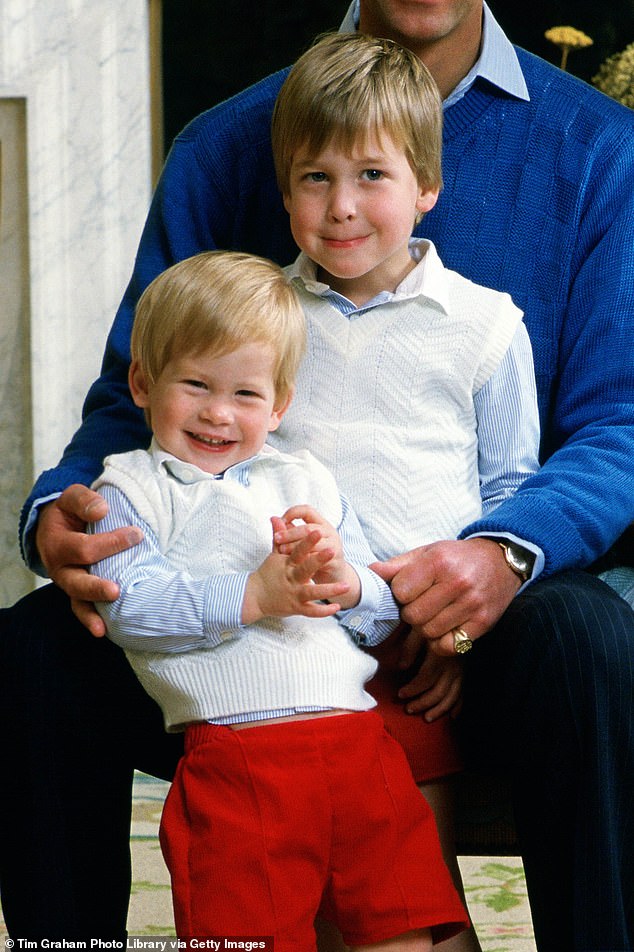As the new week begins, shocking revelations about King Charles and Prince William have surfaced, raising eyebrows and sparking outrage.
A joint investigation by the Times Insight team and Channel 4 Dispatches has revealed that these royals are allegedly funding their lavish lifestyles by pocketing millions of pounds from various public services, including the armed forces, the NHS, state schools, and even charities.
This scandal has unveiled a staggering 5,000 properties owned by the royal family across the UK, along with leases and contracts that expose the financial dealings of Charles and William.
The investigation has uncovered a particularly shocking aspect of the monarchy’s operations: they benefit from archaic feudal-like levies.
These charges stem from land seized by medieval monarchs, which has never been surrendered to the government.
The royals reportedly charge for a range of activities, from crossing rivers and loading cargo onto shores to running cables under beaches, operating schools, and even digging graves.
It’s hard to fathom the extent of this exploitation, and the sheer audacity of it leaves many feeling appalled.
For those outside the UK, the persistence of the monarchy raises questions.
How can the British public continue to support a system that seems to thrive on greed and exploitation?
The revelations have led to widespread outrage, with some commentators suggesting this could spell the end of the monarchy as we know it.
The level of discontent among the populace is palpable, and many are left wondering how the royal family could be so brazen in their actions.
James O’Brien, a prominent commentator, weighed in on the issue, expressing disbelief at the way Charles and William view public institutions.
He noted that while taxpayers contribute to essential services like the NHS and the military, the royals appear to see these entities as profit centers.
The notion that they might discuss their earnings over Christmas lunch is both absurd and infuriating.
O’Brien highlighted the hypocrisy of Prince William, who has taken on the mantle of addressing homelessness while simultaneously profiting from a duchy that charges schools, hospitals, and other public services.
This contradiction raises serious questions about the sincerity of his efforts.
While he publicly champions social causes, the reality is that he benefits financially from the very systems he claims to support.
The conversation around this scandal is complex and fraught with emotion.
Many people are grappling with feelings of anger and betrayal.
The idea that the royal family could take money from charities—funded by the generosity of ordinary citizens—while promoting their philanthropic efforts is deeply troubling.
It paints a picture of a family more concerned with maintaining their wealth than genuinely helping those in need.
O’Brien’s commentary resonates with many who feel disillusioned by the monarchy.
His observations about the royal family’s apparent disregard for the implications of their actions highlight a troubling trend.
The ongoing narrative of the royals as benevolent figures is crumbling under the weight of these revelations, leaving many to question their role in contemporary society.
The sheer scale of the financial dealings and the historical context of these practices have left many feeling bewildered.
The fact that the monarchy continues to exist in the 21st century, especially under such questionable circumstances, is astonishing.
Supporters of the royal family often cite tourism as a justification for their existence, but many argue that the economic benefits do not outweigh the costs borne by the public.
As the fallout from this investigation continues, it’s clear that the royal family’s reputation is at stake.
The public’s patience is wearing thin, and many are demanding accountability.
The disconnect between the royal family’s image and their actions has never been more pronounced, leading to an urgent call for reform.
The discussions surrounding this scandal are only just beginning.
As more details emerge, the public will likely continue to voice their concerns and frustrations.
The monarchy’s future may well depend on how they respond to this growing tide of discontent.
In light of these revelations, it’s hard not to feel a sense of disbelief.
The actions of King Charles and Prince William have sparked outrage and raised critical questions about the monarchy’s role in modern Britain.
The conversation around their practices is evolving, and many are eager to see how this will unfold in the coming weeks.
With the media now shifting its focus towards the royal family’s financial dealings, there’s potential for further scrutiny.
As the public demands transparency, it remains to be seen how Charles and William will navigate this crisis.
The stakes are high, and the pressure is mounting for the monarchy to address these serious allegations head-on.
Related Stories

